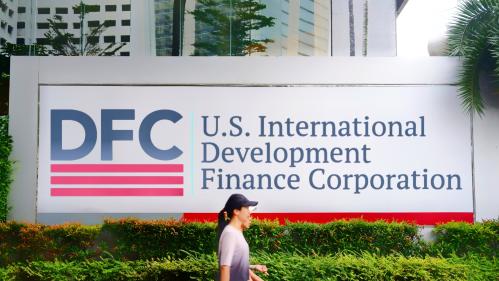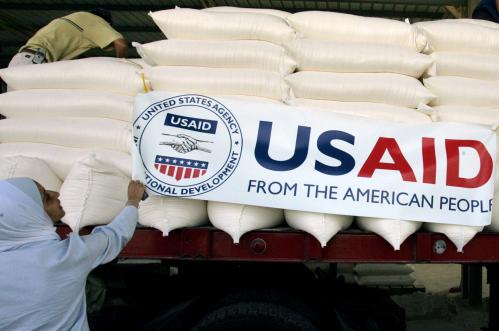While America is awash in polls this political season, two recent polls deserve attention because their findings point to a policy change that would have more impact on the future of the United States than the outcome of the midterm elections.
First, a poll by Terror Free Tomorrow conducted in Bangladesh, Indonesia and Pakistan, the three most populous Muslim countries, found that U.S. foreign aid has the potential to dramatically improve public perceptions of the United States, noting lasting favorable opinions due to U.S. assistance following the tsunami in Indonesia and the 2005 earthquake in Pakistan. The end result of the poll findings is that the United States has the ability to win “hearts and minds” through “deeper American assistance, directly to the people, following their expressed priorities.”
Second, according to a poll by the Program on International Policy Attitudes/Knowledge Networks, Americans understand the potential of this kind of “soft power” much better than their elected representatives in Washington. Of the 1,058 people surveyed for the poll, 67 percent said the U.S. should “put more emphasis on diplomatic and economic methods,” and 57 percent said they would favor “building goodwill toward the United States by providing food and medical assistance to people in poor countries.”
These results show that there is a consensus developing that U.S. foreign assistance is an underutilized soft power tool and that from Jacksonville to Jakarta, people understand that we could be doing a better job of communicating our values by more effectively identifying and helping those in need. In other words, development needs to be as strong as defense and diplomacy.
Most importantly, we can accomplish this by simply restructuring our foreign aid so that our focus is on the quality of our aid dollars rather than just on quantity. Instead of the 50 separate offices that currently manage U.S. aid programs, we could have one agency. Instead of the 50-odd objectives these offices currently pursue, we could have five strategic aid priorities, such as supporting capable foreign partners, and countering security, humanitarian and transnational threats. Research, such as a recent Brookings-CSIS task force analysis, proves that the most effective aid agencies, such as the UK’s Department for International Development, have a streamlined organizational framework with a tightly defined mission. The task force also recommended a set of steps that Congress and the administration can take to make foreign aid one of our most powerful tools for ensuring American security. (Complete findings available on Brookings’ Foreign Assistance Reform page)
In 1961, when President John F. Kennedy created the United States Agency for International Development, he described the foreign aid system as “a haphazard and irrational structure covering at least four departments and several other agencies.” These words ring true today yet we face an opportunity – bolstered by both American and international interest—to reconstruct our foreign aid strategy, help those in need and in doing so, show America’s true spirit.



Commentary
Op-edA Midterm Mandate for Lasting National Security
November 6, 2006